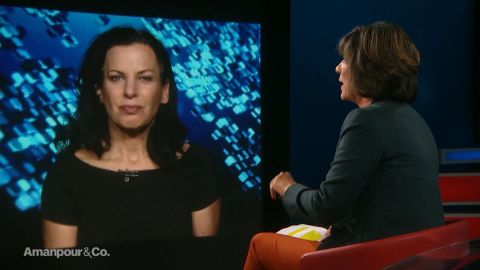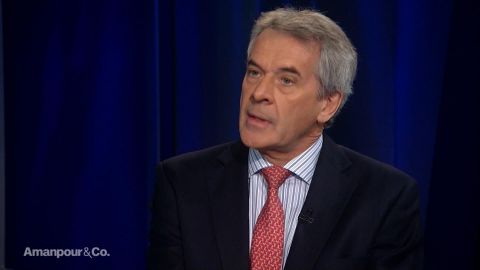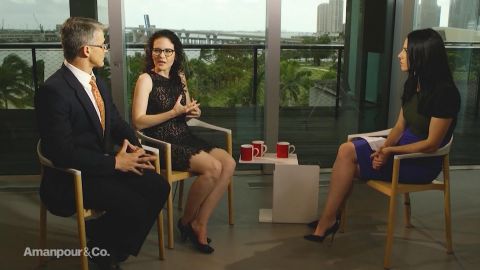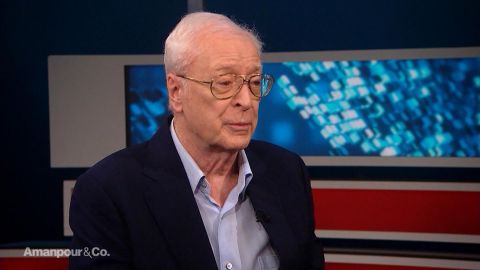Read Transcript EXPAND
MICHAEL CAINE: My view was this wasn’t going to be a sort of third autobiography, which it would have been. This was a journey between me and the reader. It was you and me. And we were going to do this together. And it came about because I told these people saying I want to be rich and famous. You know, but what I felt was that you’ve got to find out what you want to do and be the best possible person you can be at it. In my case, there are actors who are better than me, actors who are worse than me. My only competition was me. I had to be better every time.
CHRISTIANE AMANPOUR: So let’s just go back to the unlikelihood of you getting to where you are today. Because if we go all the way back to 1933, when you were born, and your parents who lived in what can only be described really as abject poverty.
CAINE: It was abject poverty. Yes. Yes. After the war, I was moved into a prefab because we got bumped out, which was a modern little cottage made of asbestos. And this was the greatest thing that happened to me because I was 12-years-old and I had a house with an indoor toilet, a bathroom, a refrigerator. I’ve never had anything. So my father was a village fish market porter and he used to take one out of every box so they didn’t notice.
AMANPOUR: He used to take one out of every box that he was —
CAINE: Yes.
AMANPOUR: –– to bring home?
CAINE: Yes, we’ve had loads of fish. He was quite well paid as a fish market porter but he was a gambler. So we never had a lot of money.
AMANPOUR: So all of that got frittered away?
CAINE: Oh, yes.
AMANPOUR: One of the most chilling passages about your childhood is when you were sort of farmed out once the war broke out and many people were farmed out, right?
CAINE: They were called evacuees, people —
AMANPOUR: Evacuees.
CAINE: People took you in, in the country, away from your parents.
AMANPOUR: In the countryside?
CAINE: Yes, in the countryside. And many of them did it not out of compassion but for money. And that was unfortunate enough. I went to a house, me and another boy called Clarence, and these people used to go away every weekend and they would lock us in the cupboard under the stairs with a tin of sardines and a bottle of water. And that changes you in life a lot, about how you see things. And for instance, from a charitable point of view, the charities I do are all for children. I don’t do any charities for adults. It’s all kids.
AMANPOUR: And another thing that stayed with you — and not many people talk about this and I was really really interested to read it. You spent time at war. You were drafted. You went to Post-World War II Germany as part of the occupiers.
CAINE: We were an occupation force in Berlin, yes, for a year. I was 18. And then they sent us to Korea for a year.
AMANPOUR: Which is really incredible. You were on the front lines. You were in a shooting war.
CAINE: I was his rifleman, yes.
AMANPOUR: And how scary was that?
CAINE: It’s terrifying.
About This Episode EXPAND
Christiane Amanpour speaks with Peter Westmacott, former UK Ambassador to Turkey and the U.S., about relations with Saudi Arabia and Juliette Kayyem, former Asst. Secy. of Homeland Security, about domestic terrorism. Alicia Menendez speaks with Patricia Mazzei of The New York Times and Politico reporter Marc Caputo about the midterms. Christiane Amanpour speaks with legendary actor Michael Caine.
LEARN MORE



